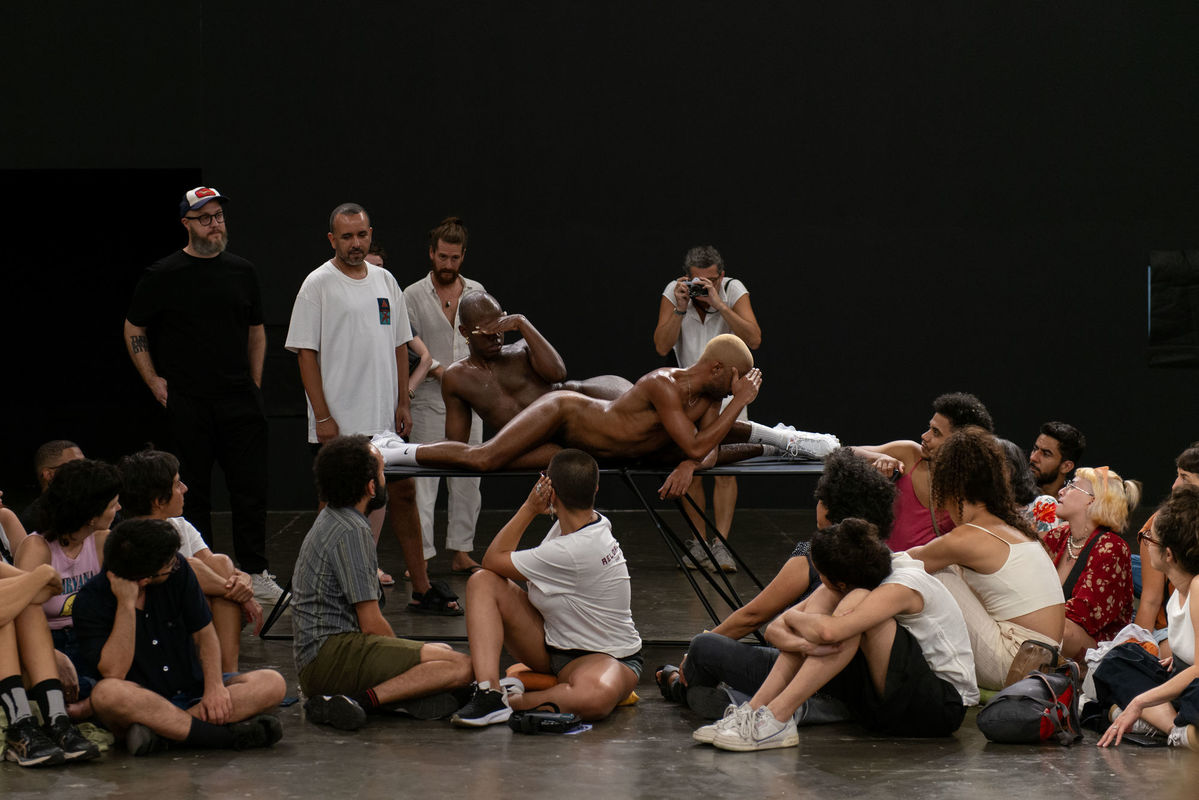
Davi Pontes & Wallace Ferreira
To speak of the output of Davi Pontes and Wallace Ferreira is, first of all, to recognize their encounter which, since 2018, has produced a series of works based on the identification and radical elaboration of their common experiences and research related to dance and the experience of the Black dissident body in the world. Among the works produced, such as Mata leão, morto vivo [Chokehold, Living Dead] (2020), Delirar o racial [Racial Delirium] (2021), and the trilogy Repertório [Repertoire] (2018 – ongoing), the duo uses mimesis, repetition, and the rhythmic marking of the counterpoint, carried out with performers’ feet, as resources to dilate the perception of timespace. Starting from the question “How can a dance of self-defense be elaborated?”, Pontes and Ferreira experiment with symbolic deviations from the violence programmed by the State and by institutions that ensure order through repression. With references to martial arts and capoeira, with the onto-epistemological critique of modern philosophy and the history of dance, they take the act of performative and visual creation as a possibility for activating and resignifying the collective mnemonic archives about these corpo realities. If the Black body at rest is suspicious and when in movement a threat, Pontes and Ferreira find within this choreographic act possible strategies to re-elaborate imaginaries, proposing changes in the symbolic meanings of the Black presence in a world that is not yet able to grant these lives existence and dignity. While modern dance has instructed the viewing public to expect impressive and grandiose events, repetition reinforces the expectation of the future and uncertainty breaks with predictability about dance. Upon making contact with the performance in progress, the audience finds itself immersed in the imprecision about beginning and end. It is possible to say that Pontes and Ferreira develop a countercolonial anti-choreography, which, in the practice of Black life can mean the recovery and foundation of strategic ways of moving towards self-defense in everyday life, deviating from racial violence, reworking the perception of self and time-space towards the end of the organization of the current world.
maria luiza meneses
translated from Portuguese by philip somervell
Davi Pontes (São Gonçalo, Brazil, 1990, Lives in Rio de Janeiro) is an artist, choreographer, and researcher. His practice explores the intersections of choreography, raciality, and self-defense. He seeks to engage audiences politically and critically, prompting reflection on the production of history.
Wallace Ferreira (Rio de Janeiro, Brazil, 1993) is a multidisciplinary artist with a background in dance and visual arts, his artistic practice defies conventions and explores the intersections of movement, performance, voguing, and visual imagery. Through his works, he delves into the realms of the invisible, challenging certainties and engaging in narrative disruptions.

 Português
Português